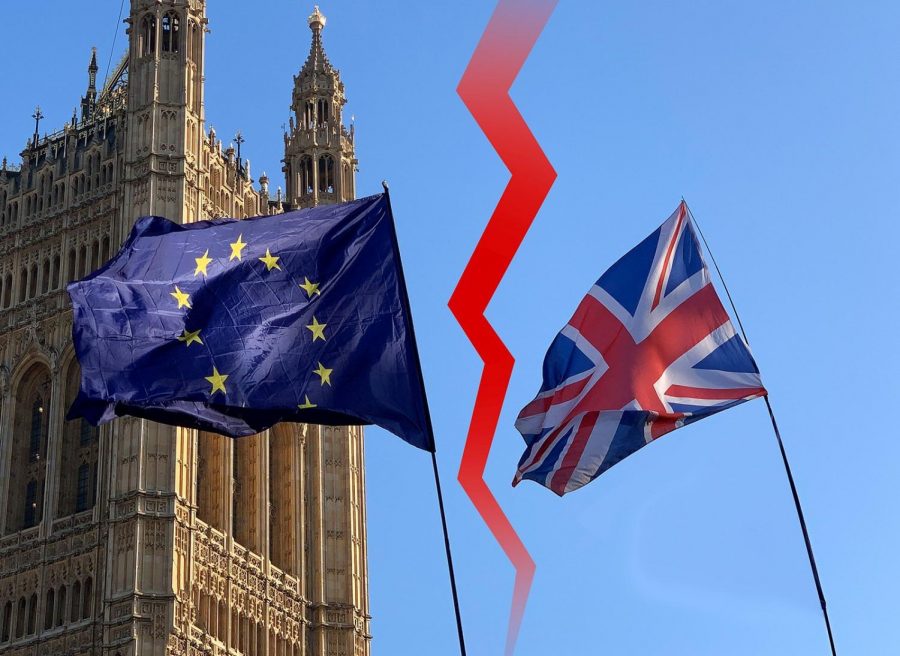Brexit: Why Britain Should Stay in the EU
Since 2016, Britain under Prime Ministers David Cameron, Theresa May, and Boris Johnson has struggled with the issue of Brexit. Brexit is the exit of Britain from the European Union, which is an organization of 28 European nations that creates economic and political policies suitingEurope’s needs. This ongoing debate in Britain is led by those who are opposed to remaining in the EU (Eurosceptics) and those who support Britain’s place in the EU (European Unionists).. Former Prime Minister David Cameron was a European Unionist. During his term as Prime Minister, he proposed that a referendum take place for Britain with the options of “leave” or “remain,” believing that the turnout would overwhelmingly support remain.
However, on June 23, 2016, the referendum result was the opposite. The United Kingdom altogether voted to leave the EU with 51.9% majority, and to remain with 48.1% minority.This was composed of England voting 53.4% to 46.6% to leave, Wales voting 52.5% to 47.5 to leave, Northern Ireland voting 44.2% to 55.8% to remain, and Scotland voting 38% to 52% to remain.
Most of the UK is torn apart by the pros and cons of Brexit. The leading view, among several others, of the Eurosceptics is the danger of an increasing surge of immigrants into Britain. This is permitted by the open borders between all nations in the European Union. Eurosceptics want tangible control over Britain’s borders, allowing higher security. However, the underlying vexation of the British people overall is the attack on British national sovereignty that remaining in the European Union presents. Britons argue that doing so would return influence over their domestic and foreign affairs back to Britain, giving heightened independence and nationalism to Britain.
Eurosceptics argue that the negative repercussions of a Brexit, however, would be significant enough to offset the positives. Perhaps the biggest concern is trade, and Brexit’s effect on financial markets. As nations that are a part of the EU are excused from tariffs when trading with each other, British businesses exploit this financial advantage, making European countries their largest export. Consequently, with almost half of their trade exports going to EU nations, leaving the EU would create a serious financial crisis, in which Britain’s economy would plunge due to increase in trade tariffs and a lack of beneficial trade deals set by the EU. Brexit would also cause a substantial blow to the British workforce; millions of jobs and wages secured by the influx of immigrants would be lost which would cause a severe loss in necessary goods.
Although security of the border is one of the main concerns of Eurosceptics, ironically, remaining in the EU would help keep Britain more secure. Many argue that the coalition and power against terrorism that the European Union exhibits is more important than the influx of immigrants, after all.
“It is through the EU that you exchange criminal records and passenger records and work together on counter-terrorism. We need the collective weight of the EU when you are dealing with Russian aggression or terrorism,” said former UK Secretary of Defense, Michael Fallon.
However, against the overwhelming positives of remaining in the EU, the majority of British people voted to leave. Accordingly, this irrational decision can be attributed to a general ignorance of the British people to the topic of Brexit before voting to leave or remain in the EU. To the world’s astonishment, on June 24, 2016, the day after the national referendum occured, the top two questions on the topic of the EU searched on Google were “What does it mean to leave the EU” and “What is the EU.” Additionally, there was a 250% spike in the search of “What happens if we leave the EU” just a few hours after the referendum on June 23, according to Google Trends.
It also seems that voters did not take the referendum seriously, thinking that their votes were not important.
“I voted leave but didn’t think my vote would count – I never thought it would actually happen,”’ said a voter who voted for Britain to leave the EU.
Whether it was the lack of understanding about the topic, or the belief that the referendum was facetious, it is apparent that Britain, now worsened by Prime Minister Boris Johnson, has made a big mistake.











